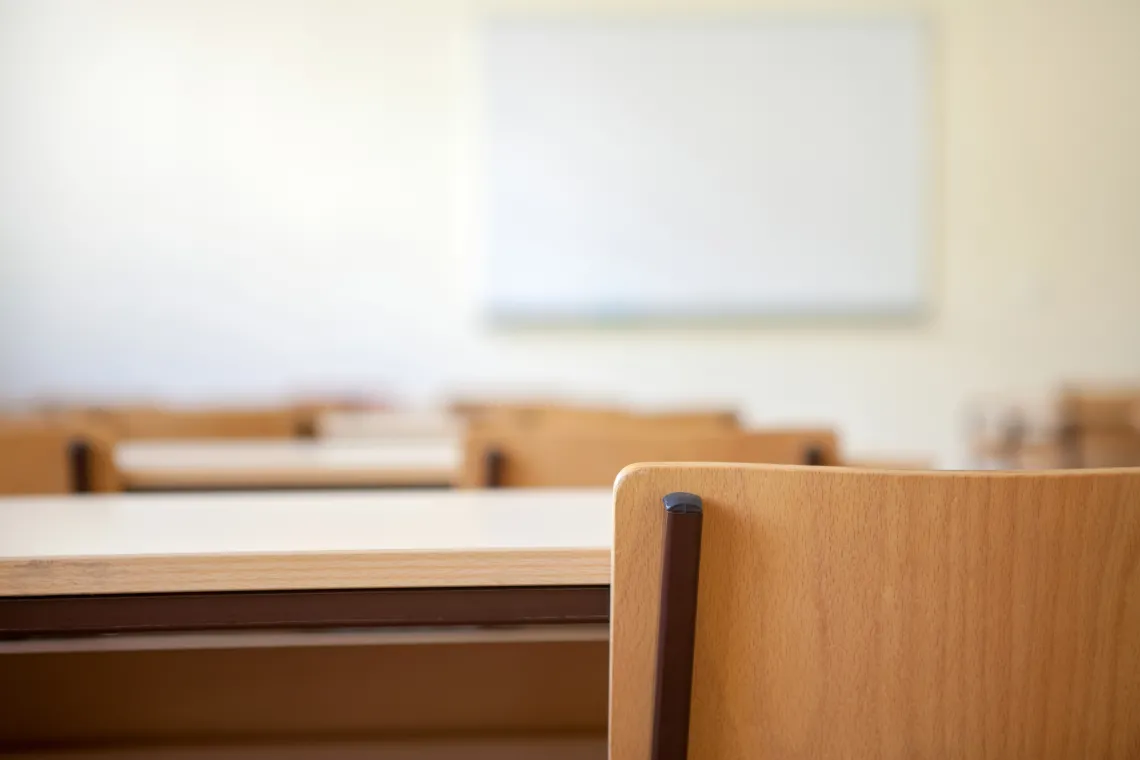Education Advocacy Clinic Leads Initiative to Change a Court Rule Regarding the Practice of Non-Lawyer Education Advocates
Proposal submitted by Clinic to engage in informal advocacy measures approved by Arizona Supreme Court

Students in University of Arizona Law’s Education Advocacy Clinic, which works to enforce public school students’ rights by providing information, support, and legal services to children in Tucson's K-12 schools, will now be able to better serve students and their families after petitioning the Arizona Supreme Court to change a rule regarding the practice of non-lawyer education advocates.
Working alongside Arizona Center for Disability Law (ACDL), Associate Clinical Professor of Law and Director of the Education Advocacy Clinic Diana Newmark and clinic students drafted a proposed order that would allow non-lawyer educated advocates to engage in informal advocacy measures, such as attending meetings or mediation and conducting outreach to school officials, without violating the prohibition on the unauthorized practice of law.
The prior rule had authorized non-attorneys to represent students in more formal settings, such as due process hearings in disputes over special education rights, but the rule was silent on informal dispute resolution measures that make up the bulk of the work of an education advocate.
“The formal settings are relatively rare, and both parents and schools would often prefer to settle disputes informally. The new rule makes it clear that non-attorney advocates, like our BA in Law and MLS clinic students, can provide this informal assistance to clients,” says Newmark.
The Clinic accepts students from the JD, Master of Legal Studies (MLS), and BA in Law programs and has a particular focus on serving children who are involved in juvenile delinquency, child welfare, or immigration matters. Clinic legal services include representation in school discipline and special education matters. Students in the clinic work together on education advocacy cases, supervised by Newmark.
“The rule change is particularly important for our BA in Law and MLS students,” says Newmark. “It gives them the green light to do even more direct work on clinic cases – helping clients with things like visiting school placements, drafting demand letters, and attending school-based meetings to secure special education services – without worrying about engaging in the unauthorized practice of law.”
The new rule also supports the work of non-profits across the state that provide advocacy services to students with disabilities, such as ACDL, which employs both attorney and non-attorney advocates. This rule clarifies that non-attorney advocates can serve their clients in informal settings, expanding the scope of their work, as well.
“In Arizona and throughout the United States, many parents seek support of an education advocate to help them navigate the complexities of special education laws. Navigating the public special education system can be a difficult and confusing process for many parents of students with disabilities,” says ACDL Chief Executive Officer and University of Arizona Law alumnus JJ Rico (‘01). “The new rule leaves no doubt that the amazing work of our non-attorney advocates do at every level to help resolve disputes between schools and families is permissible and should not be subject to accusations of the unauthorized practice of law.”
First-year law student Grace Schroder, who assisted the clinic in amending the rule, was part of the clinic last year, during her senior year as undergraduate Political Science major. Schroader says it was wonderful to learn about education law in a hands-on way and be part of something that benefits the community.
"It feels very rewarding to know that the work we did paid off,” said Schroder. “I know how hard the clinic worked to prepare this rule change, and I am so glad that it will now benefit non-lawyer advocates.”
“When Professor Newmark informed us that the rule change had been approved, I felt very happy that now parents and children can have a new way to acquire representation when needed. It felt like all the time we spent drafting, and meeting with people to see how we could approach it best was all worth it,” said 2023 BA in Law grad Crystal Flores, who also worked on amending the rule as a student in the clinic. “It's a very rewarding feeling to know that the work we do can make an everlasting difference.”
“I am glad our students can see that although these things take time, they are able to make a change,” said Newmark.
